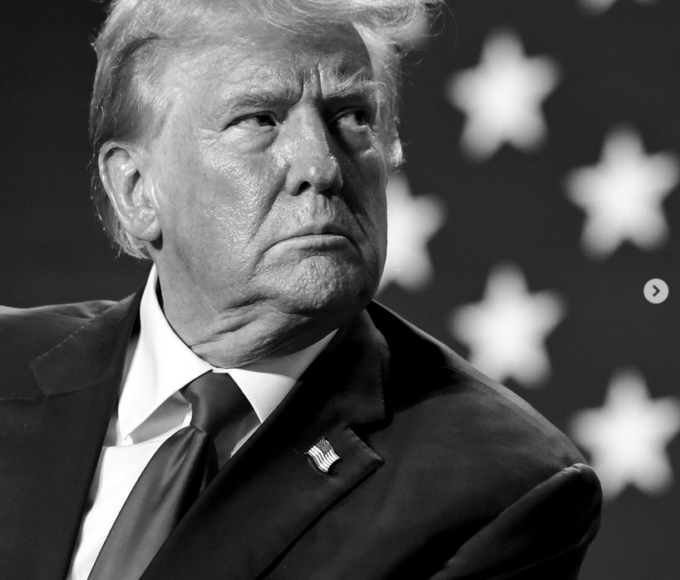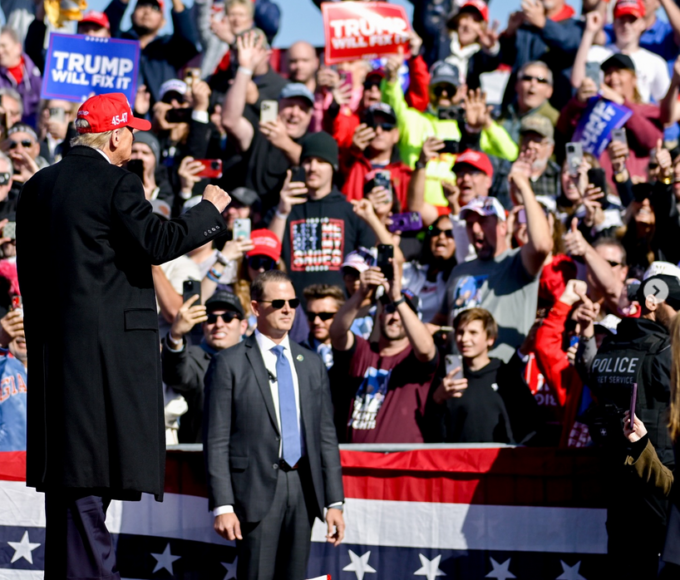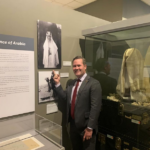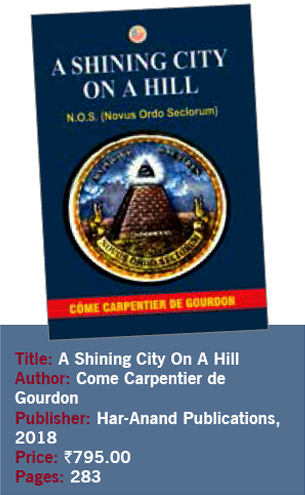THE Indian Parliament – Beyond the Seal and Signature of Democracy is a very fascinating book on the working and the progress of Indian democracy. I believe that parliamentary democracy is a dynamic, ever evolving concept. There are books written from time to time, but a book on democracy and more so on parliament must elucidate constitutional jurisprudence, political philosophy and capture contemporary as well as historical developments. The chief merit of this book is that it’s not only a fine blend of constitutional precepts, parliamentary practices as obtaining but also documents the flaws and failings of our parliamentary democratic system and throws open questions for wider and deeper reflections so as to further strengthen our democratic edifice.
The book, a treasure of precious information not to be found in any single book or source, is written in a lucid, engaging style. The author, while tracing the genesis of democracy from Graeco-Roman and Westminster sources, fathoms the roots of democratic institutions in India in far greater antiquity, much before its occidental evolution. The author has quoted Vedic hymns which refer to ‘Sabha’ and ‘Samiti’ and the tradition of ‘the true King going to the Assembly’. For instance, there is a quote from the Atharva Veda, ‘we elect you to rulership, the wide glorious quarters elect you. Be seated on this high point ( the throne) in the body of the state and from there vigorously distribute the natural wealth and material prosperity to the people’. This hints that originally kingship was elective and it later became hereditary due to the evolved rule of primogeniture. The Upanishadic counsel was ‘open the door to thy people, for the obtaining of Sovereignty’. There are references which show that an Assembly could not start its proceedings and take decisions without quorum. There was provision for quorum hailers or ‘gana pukaraks’. The King was to be guided by the mantri parishad and ‘the public opinion’, described as ‘the multi-fibre rope capable of taming the lion’. The chapter on ‘Making of the Constitution’ is so refreshing as it quotes the founding fathers from the Constituent Assembly debates and their philosophy and vision for a strong, prosperous and all inclusive socio-economic and political democracy without duality and discrimination. The author has painstakingly and imaginatively evolved a code of duties for members of Parliament, which perhaps no Indian textbook has so far attempted. It’s not that MPs are not conscious of their undefined charter of duties but certainly an attempted code would be a constant reminder, act as benchmark and illuminate the electorate. The powers and functions of parliament have been dealt with exhaustively and authoritatively.
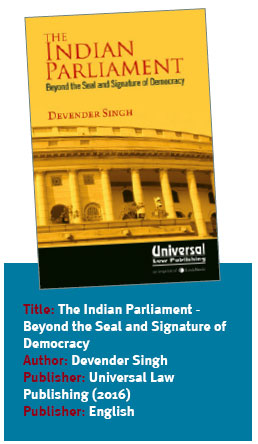 The devices for raising discussions in parliament have been explained in clear, concise and perspicuous terms supported by tables, boxes and examples for quick grasp. I endorse the view that ‘committees bring unity out of plurality, direction out of confusion and decision out of discussion’. I concur with the author that a parliamentary committee is a high tribunal of parliament where the game is not government vs. the opposition but between parliament and the well-entrenched bureaucracy. The book makes out a case for further strengthening the committee system as the committees bring greater sense of participation among the members and establish balance between the legislative, representational and deliberative functions of parliament and save valuable time of both parliament and the government.
The devices for raising discussions in parliament have been explained in clear, concise and perspicuous terms supported by tables, boxes and examples for quick grasp. I endorse the view that ‘committees bring unity out of plurality, direction out of confusion and decision out of discussion’. I concur with the author that a parliamentary committee is a high tribunal of parliament where the game is not government vs. the opposition but between parliament and the well-entrenched bureaucracy. The book makes out a case for further strengthening the committee system as the committees bring greater sense of participation among the members and establish balance between the legislative, representational and deliberative functions of parliament and save valuable time of both parliament and the government.
The book brings out the finer nuances of the working of the Indian Parliament, the duties of its functionaries, its interface with other constitutional bodies and the Fourth Estate and the role they play in strengthening democracy. Parliamentary privileges have been described, and I concur with him, ‘a shield rather a sword’ so as to protect and uphold the dignity, authority and the independence of parliament and its members so that they discharge their functions without let or hindrance. The glossary is certainly a value addition which would be found immensely useful by the readers.
Overall, this an absorbing and instructive book replete with historic and contemporary precedents in the parliamentary annals of India. It is indeed a brilliant, insightful book dealing with the powers, functions and procedures of Parliament, elections and electoral systems and nature and role of political parties in a parliamentary democracy. The author rightly claims that we are, despite its many flaws and failings, ‘a gold plated democracy with a gold plated press’. The introduction to the book by Dr Murli Manohar Joshi is a philosophical tract enshrining the vision and the informed thinking of an elder statesman enhancing immensely the value of the book.
THE author has described the intricacies of democratic institutions, the dynamics of parliamentary government, the public perception of parliament, the intermittent democratic disquiet and the future of democracy itself. Besides, the book draws attention to the general concern about the working of parliament, its often obstructive politics, its highs and the lows and the areas, including the political perceptions across the political divide, in need of reforms and reorientation. It’s fine structural symmetry and incisively analytical approach makes it a lively textbook, and a much awaited addition in the field of parliamentary studies, written by one who has had a long time ring-side view of the working of Indian Parliament. The author has obviously read and assimilated a wide range of parliamentary literature and diverse sources and woven a commendable narrative—an anthology as much an anatomy, of the Indian democratic system. It’s a compelling book for scholars of constitutional and parliamentary studies, legislators, public servants, students and all those who desire to study and understand the working of the largest democracy of the world.
The writer is MP, Lok Sabha.

















